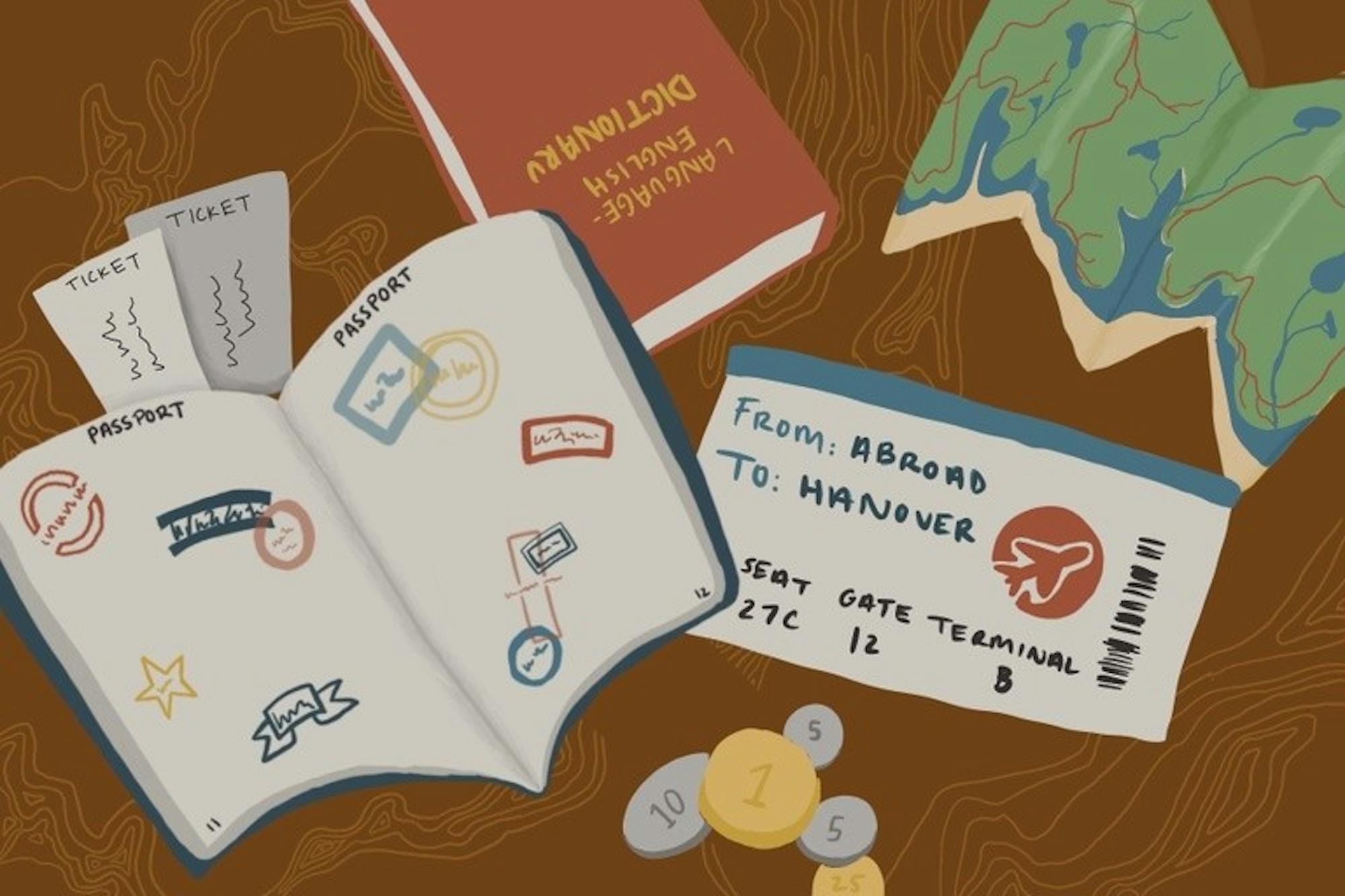After two years of limited travel and pandemic-related restrictions, it’s no wonder that when Dartmouth announced the re-opening of study abroads starting fall 2021, students jumped at the opportunity to participate. For those interested in studying abroad, the College offers both language study abroads — which focus primarily on language skills — and foreign study programs — which focus on a particular field of study in the context of a different country.
The College floods students with messages about the benefits of studying abroad, highlighting on the Guarini Institute’s website that students who go on these programs return to campus with a “broadened world view,” and that some students find new interests which alter their academic trajectories or “bring a new focus to their studies and their lives.”
When a student goes abroad, it seems there is some expectation that they will return as a changed person, but how accurate is this notion? In search of answers, I spoke to several students who went on study abroad programs during this past fall and winter about whether or not their experiences abroad lived up to the hype.
For some, it took time to acclimate to life in a different country. This winter, Laurel Pitts ’24 studied in Toulouse, France on the French LSA. There were 11 Dartmouth students on her program — mostly non-French majors — whom Pitts described as all having a relatively advanced level of French. When Pitts first arrived in Toulouse, she noted that the adjustment period came with its fair share of challenges and it was sometimes difficult to communicate with her host family exclusively in French. However, she recalled that her skills improved over the course of the term, and by the end she could “speak French without thinking.”
For Pitts, there was a moment where it all clicked. As she grew increasingly comfortable in Toulouse over time, there came a point where she finally felt at home.
“It was around week three and I had been in the center of the city with a few others on the program. I was coming up the escalator of the Metro at the end of rush hour and felt like I blended in with everyone else,” Pitts said. “It was this lovely sunset evening and I felt this sense of fulfillment in belonging and being at home because I was becoming confident in the language as well as living in Toulouse.”
Students also had support from faculty on their trips. Kendall Milender ’23, who participated in the English and Creative Writing FSP at Queen Mary’s University in London this fall, said that her program’s chaperone professors lived in close proximity to the students and got to know them by hosting weekly dinners.
“It felt like we had parents abroad,” Milender said.
On the anthropology domestic study program in Hawaii this winter, Ale Geisel-Zamora ’23 found that studying away from campus significantly enhanced her learning. Geisel-Zamora’s program consisted of interdisciplinary, hands-on work ranging from art, poetry and peace building to manual labor in the form of algae clean-ups and invasive species removal.
She highlighted the benefit of going to Hawaii as part of an immersive, educational experience rather than as a tourist. The experience raised important questions for Geisel-Zamora regarding her positionality in Hawaii, as well as cultural awareness of the issues surrounding Hawaiian sovereignty and the struggles of indigenous Hawaiians.
“It made me appreciative of what was around me as you could see a difference from beginning to end in the projects we were working on,” Geisel-Zamora said.
Leaving Dartmouth behind is a common concern when studying abroad. But Pitts, Milender and Geisel-Zamora all expressed that there was such a strong presence of Dartmouth students on their trips that they did not feel entirely displaced from the College. For example, Milender joined around 50 Dartmouth students studying at different London universities, all of whom lived near one another in Bloomsbury-area flats. In Milender’s own words, it felt like “Dartmouth had just moved to London.”
Although there were aspects of Dartmouth that carried overseas, there were some elements of the College that could not be replicated abroad. While Milender attended Queen Mary’s for a full semester, she described feeling no attachment to the school itself since she didn’t spend time there socially — and she noted how she missed the Dartmouth student body’s sense of community and pride.
For better or worse, every student I spoke to agreed that they did feel changed by their experiences away from campus. Pitts reflected on gaining both self confidence and independence from her time in Toulouse, and Geisel-Zamora grew so comfortable with the slow pace of Hawaii that she has found it difficult to reacclimate to campus life.
As Geisel-Zamora put it, “any prolonged amount of time in a place changes you,” and it seems that study abroads are no exception.
Geisel-Zamora is a former member of The Dartmouth staff.




